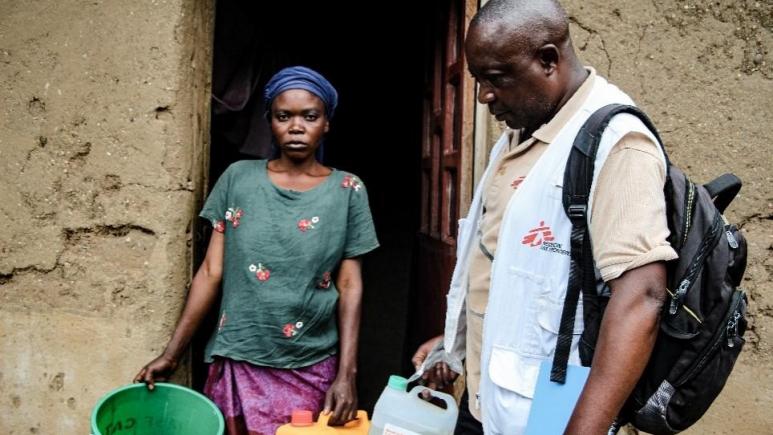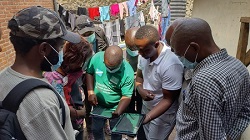Cholera: a 360° approach to containing epidemics
Report in the health area of Kiniezire, located halfway between Bukavu and Goma, where most cases have been recorded.
The Democratic Republic of Congo (DRC) is regularly confronted with cholera outbreaks. To reduce the spread and avoid potentially fatal outbreaks, especially for young children, Epicentre and Médecins Sans Frontières (MSF) teams are implementing the CATI (Case-Area Targeted Intervention) strategy, which simultaneously combines several prevention and treatment actions targeted within a 100-meter radius of cases. While this strategy was developed several years ago and is implemented by other actors, the particularity of its implementation by MSF in the DRC is that it includes vaccination in the package of activities implemented rapidly after the first cases are detected. This is in addition to the other pillars of CATI, which are antibiotic chemoprophylaxis, hygiene promotion interventions, and the distribution of hygiene kits. Vaccination will strengthen CATIs' ability to cut the chain of transmission while also providing longer-lasting protection against the disease for those vaccinated. Epicentre is conducting a study to evaluate the impact of implementing these CATIs.
To learn more about the epicentre study: evaluation of a localized response to cholera outbreaks
Report
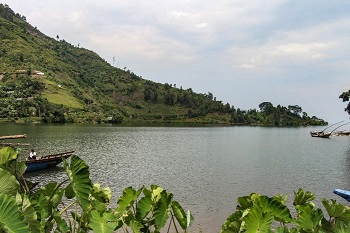
In Kiniezire, after malaria, cholera is the main health concern. Located on the shores of Lake Kivu and below the highlands, the population is doubly exposed to the consumption of unsafe water, a vector for the transmission of the disease. In the absence of a drinking water distribution network and sufficient sanitary facilities, the inhabitants use the water of the lake to drink, clean their food, wash themselves... In this context, cases of cholera occur regularly.
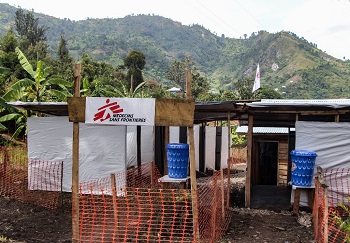
At the Kiniezire Hospital, MSF has set up a cholera treatment unit that treats suspected cases. Once a positive case has been identified, MSF teams, in collaboration with community outreach workers, deploy the CATI approach in the household and in the surroundings of the household from which the patient came to rapidly reduce the risk of spreading the infection. In parallel to the actions carried out with the families directly affected, access points to drinking water have also been rehabilitated in Kiniezire.
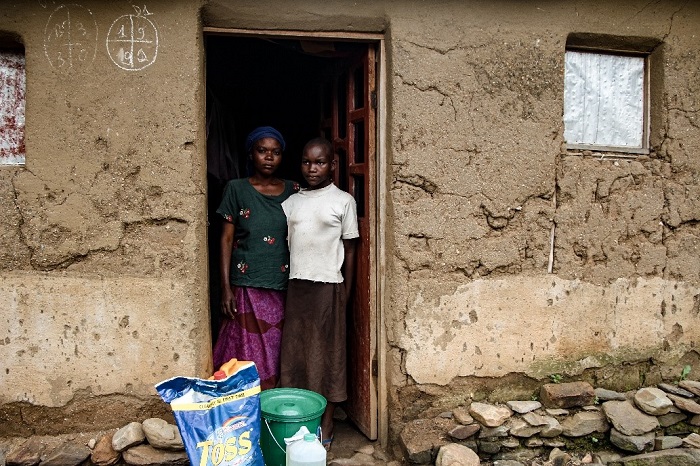
Ange, 13 years old, was showing symptoms of cholera. The day after she was admitted to the cholera treatment unit, the response by MSF teams began in his home. All nine members of his family were vaccinated. As a preventive measure, and prior to the vaccination, an antibiotic was also administered to the entire family as well as the closest neighbors so that if any of these people had already been infected, they would not develop complications from the disease.
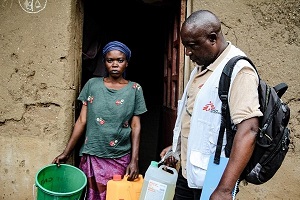
Mama Bibishe, Ange's mother, received a set of hygiene products - bucket, bleach, laundry detergent, broom, soap, jerry can, aquatabs (chlorine-based tablets to disinfect water) - to eradicate cholera in her home and prevent future infections.
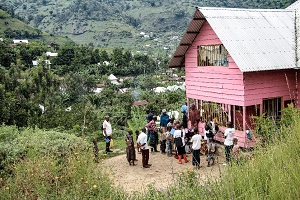
Awareness-raising sessions are also held in each household within a 100-meter radius of Ange's home. Each session begins with an explanation of the modes of transmission and symptoms of this disease, which is often stigmatized by the community. These moments of exchange are also an opportunity to remind people of the basic hygiene measures to observe in order to limit contamination.
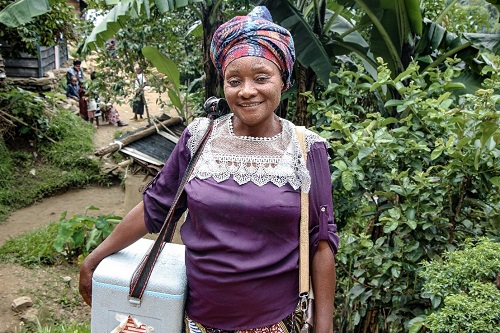
Félicité, native of Kiniezire, is a community outreach worker. She is part of a team of eight people in charge of implementing the CATI approach in households identified as "at risk" because of their proximity to a confirmed case. In her cooler, she carries oral cholera vaccines that must be kept at a temperature between 2 and 8 degrees.
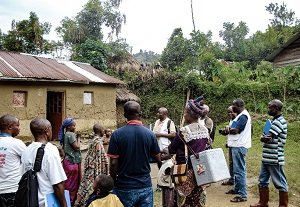
In addition to sensitization, cholera vaccination is offered to members of households located within the defined perimeter. A first oral dose is given during the visit of the MSF teams. It will be repeated two weeks later. Thus, each vaccinated person will be protected for several years.
Crédit Photo : Lisa Véran/MSF







